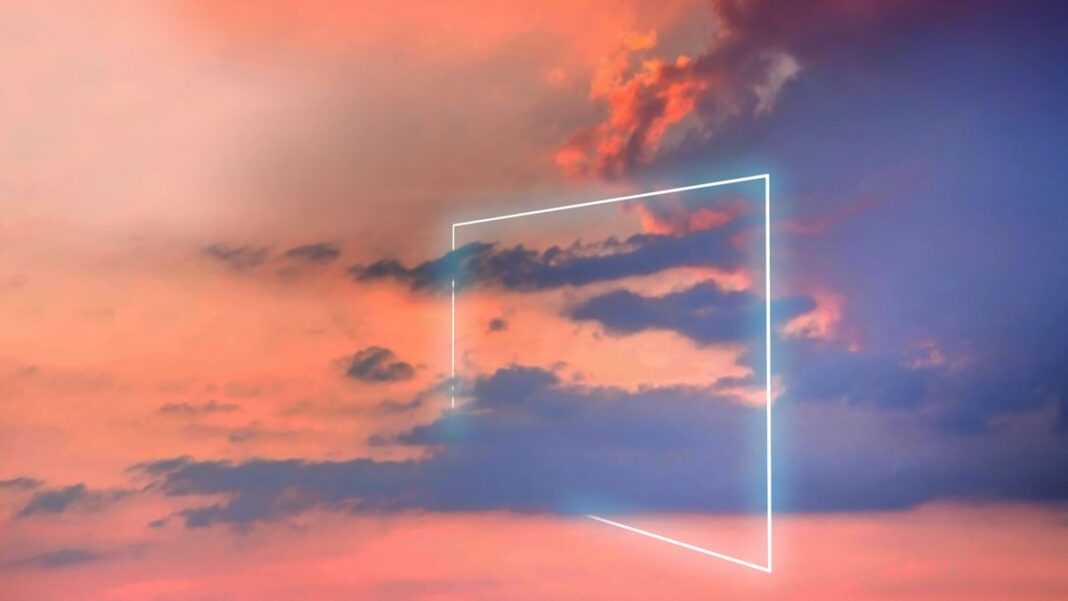“It just doesn’t sit right with me,” begins a TikTok by a user named Evelyn Juarez. It’s a breakdown of the tragedy at Astroworld, the Travis Scott concert in early November where eight people died and more than 300 were injured. But the video isn’t about what actually happened there. It’s about the supposed satanic symbolism of the set: “They tryna tell us something, we just keep ignoring all the signs,” reads its caption, followed by the hashtags #wakeup, #witchcraft, and #illuminati.
Juarez, a 25-year-old in Dallas, is a typical TikToker, albeit a quite popular one, with 1.4 million followers. Many of her videos reveal an interest in true crime and conspiracy theories — the Gabby Petito case, for instance, or Lil Nas X’s “devil shoes,” or the theory that multiple world governments are hiding information about Antarctica. One of her videos from November suggests that a survey sent to Texas residents about the use of electricity for critical health care could signify that “something is coming and [the state government] knows it.”
Her beliefs are reminiscent of many others on the internet, people who speak of “bad vibes,” demonic spirits, or a cosmic calamity looming just over the horizon, one that the government may be trying to keep secret. Juarez tells me she was raised Christian, although at age 19 she began to have a more personal relationship with God outside of organized religion.
Today, she identifies more as spiritual, as an increasing number of young people do, many of them working out their ideas in real time online. They may talk about manifesting their dreams and faceless sex traffickers waiting to install tracking devices on women’s parked cars. Some might act almost as prophets or shamans, spreading the good word and guiding prospective believers, while others might just lurk in the comments. They might believe all or only some of these ideas — part of the draw of internet spirituality is that it’s perfectly pick-and-choosable — but more than anything, they believe in the importance of keeping an open mind to whatever else might be out there.
I asked Joseph Russo, a professor of anthropology at Wesleyan University, if this loosely related web of beliefs could ever come together to form into its own kind of religion. “I think it already has,” he says.
Call it the religion of “just asking questions.” Or the religion of “doing your own research.” It’s still in its infancy, and has evolved in an attempt to correct a societal wrong: that the world is a pretty fucked up place and it doesn’t seem like the current system of dealing with it is really working, so maybe something else is going on, something just out of reason’s reach. The religion of the internet has also already culminated in real-world violence, the most obvious examples being the QAnon-related coup on January 6 and the conspiracy theories surrounding lifesaving vaccines. Yet its more innocuous effects have been likewise transformative.
Consider the widespread mainstreaming of astrology over the past decade, the renewed interest in holistic medicine, or the girlboss optimism of multilevel marketing companies. These are all frameworks of belief that question traditional logic and institutional thought — for instance, that science-backed medicinal practices work better to cure disease than essential oils, that 99 percent of people who sign up for an MLM end up losing money, or that the idea that your entire personality can be determined by the positioning of the stars at the time of your birth is fundamentally false. These are beliefs that cast oneself as the exception to the normal rules of the universe, that perhaps even if the data says that rates of violent crime have dropped considerably since the 1990s, you, personally, are in far graver danger than you were the year before.
2020 was the first year on record that the majority of Americans said they did not belong to a church, synagogue, or mosque; from the 1930s to the turn of the 21st century, around 70 percent of Americans did belong to one. Americans, particularly younger ones, increasingly report that they have no religious preference, or as some have put it, it’s “the rise of the nones.” But perhaps “none” doesn’t quite tell the whole story.
The religion of the internet posits questions like, “what’s the harm in believing?” and “why shouldn’t I be prepared for the worst?” The deeper you go, the harder those questions are to answer.
Perhaps it’s all because of the Puritans. They were the ones, after all, who consecrated the American legacy of individualism, piety, and hard work at the expense of all else. Or maybe it came out of the recurrent phenomena of Protestant-led Great Awakenings that have peppered US history since before it was a country, social movements that preached the importance of one’s personal relationship with God outside of organized rituals and ceremonies.
“It was the idea that you could perfect yourself, your health, and your circumstances,” explains Mary Wrenn, an economics professor at the University of the West of England Bristol who studies neoliberalism and religion. This eventually culminated in the prosperity gospel, known best for its charismatic leaders preaching financial wealth and the widespread practice of manifesting, or the idea that in order to make positive things happen in your life, all you have to do is pretend as though they already are. “It’s during periods of economic crisis that we really see it start to flourish,” says Wrenn. Because many of the churches where it’s preached can be attended virtually, the message travels much further. “It’s a lot easier to have believers when you don’t have to physically be in a church. The portability of the message is what makes people believers in the prosperity gospel even when they’re not necessarily regular churchgoers.”
The same could be said for the internet, where spiritual trends proliferate much like cultural and political ones. In fact, the latest iteration of New Thought’s founding principles is inseparable from the internet: Russo, the anthropology professor, notes that as social media has become the dominant cultural force in our society, ideologies are spreading between people who may have vastly different beliefs and backgrounds, but who show up on each other’s feeds and relate in new ways.
“It’s a mishmash of different Christian and non-Western beliefs and aesthetics, but this stuff — good and evil, prosperity — are present in all religious systems worldwide, and always have been,” he says. “Even our most fervent atheists or agnostics are still interested in morality. It’s the same idea, different packaging.”
Read Full Article on Vox.com







